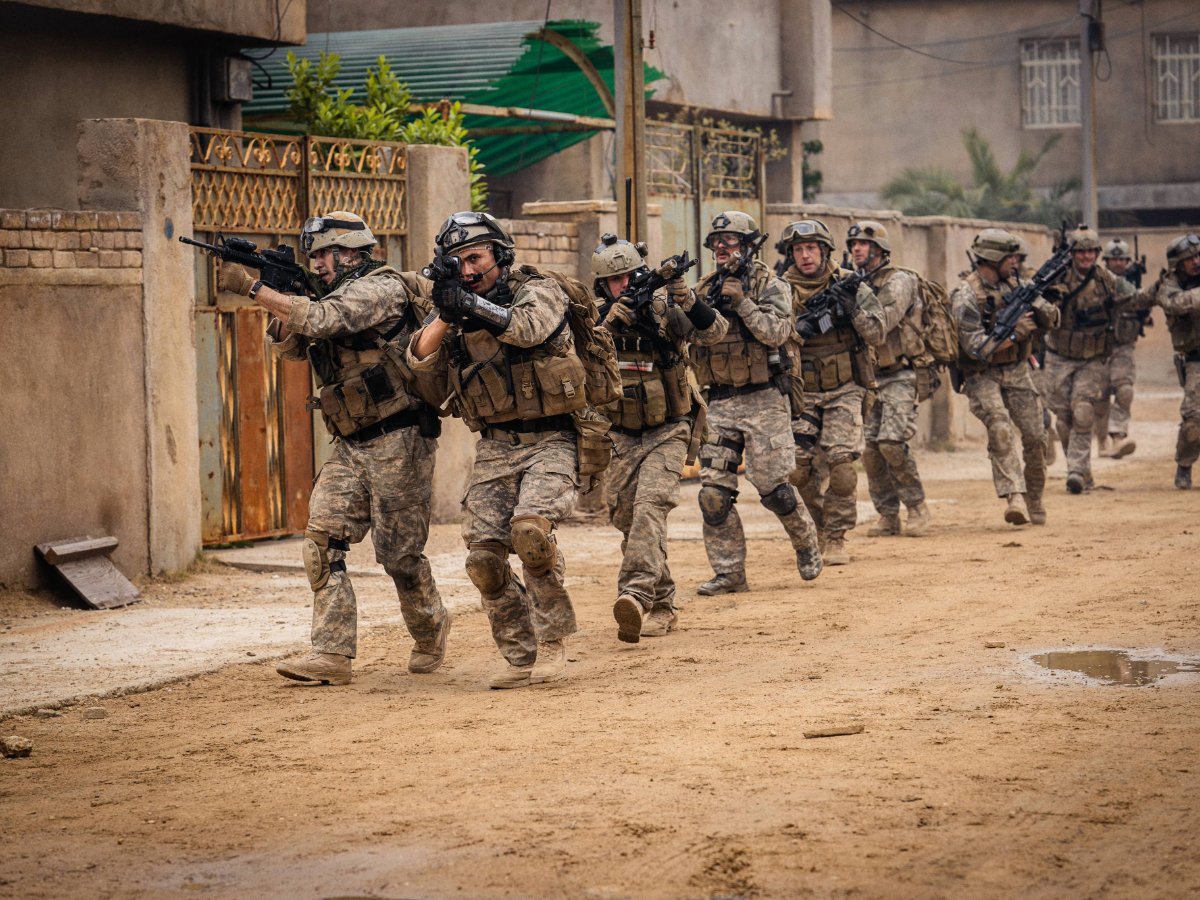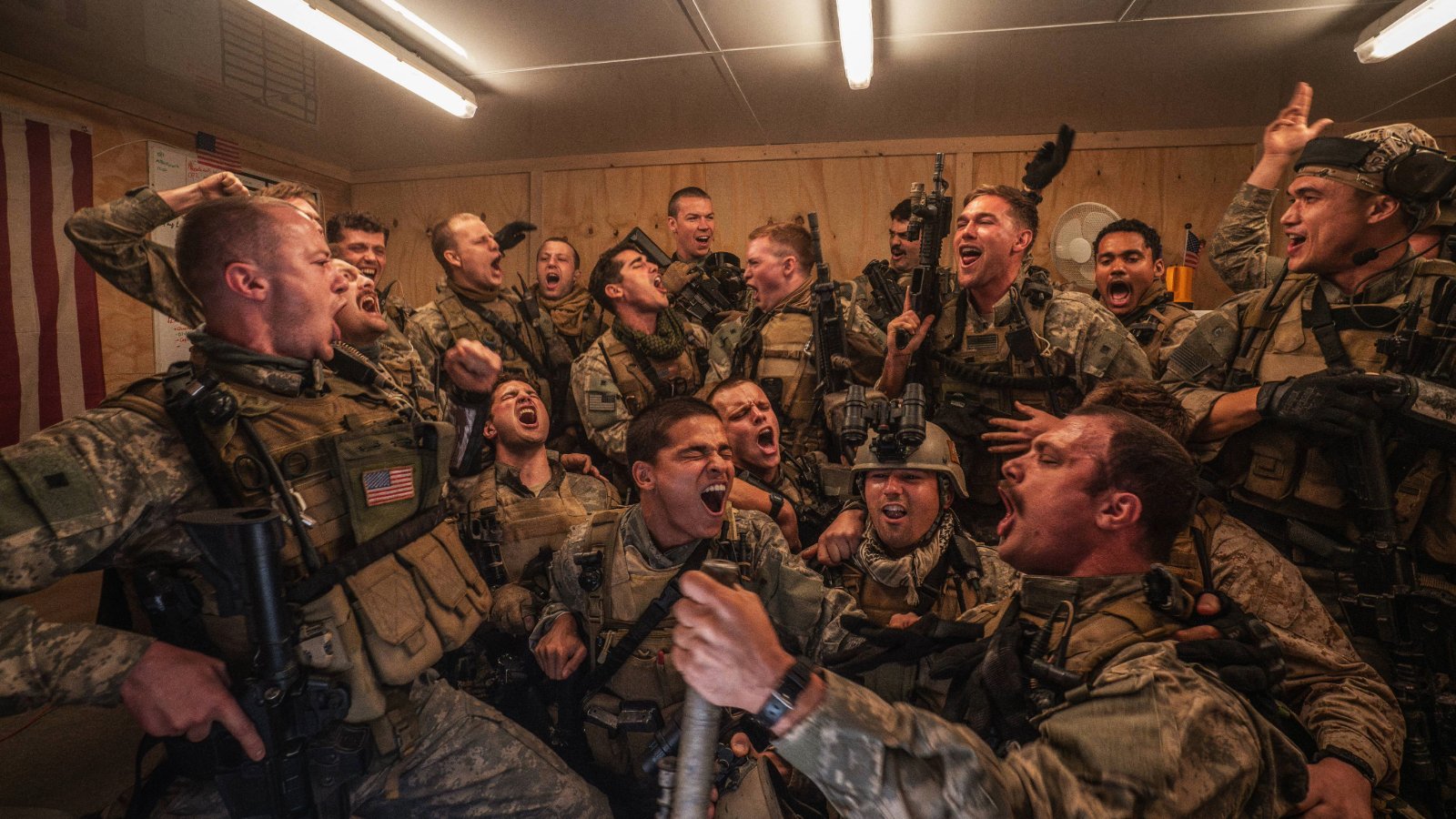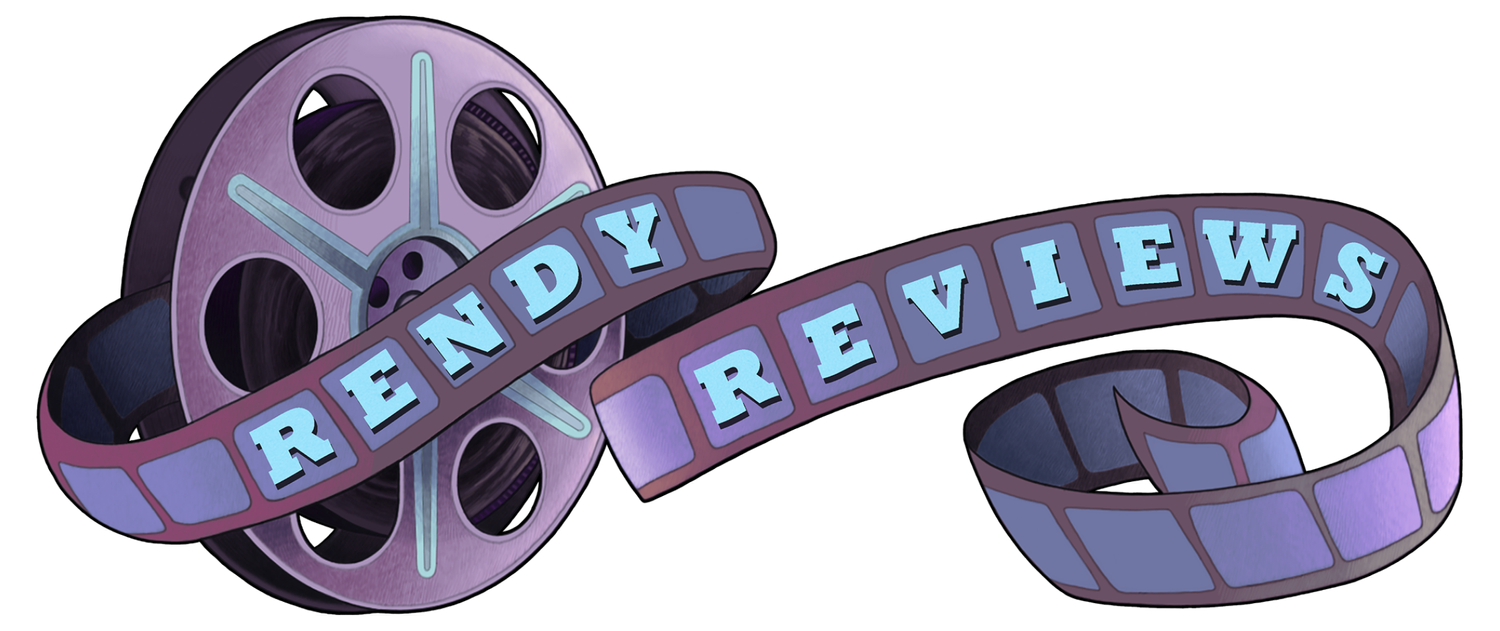
‘Warfare’ Review: Alex Garland and Ray Mendoza’s Visceral Iraqi-Set Flick is an Intense Portrait of Wartime Survival
A refreshing change of pace from nearly two decades of jingoist, nationalist Hollywood war films.
‘Warfare’ Review: Alex Garland and Ray Mendoza’s Visceral Iraqi-Set Flick is an Intense Portrait of Wartime Survival
During production of Civil War — which I found decent in its direction and broadly well-thought-out in its depiction of a third-world America — director Alex Garland and his military consultant Ray Mendoza became bros. So much so that Garland’s interest in Mendoza's background as a former Navy SEAL led them to collaborate. At first glance, Mendoza and Garland's co-directorial affair, Warfare, seemed like another militaristic propaganda flick veiled by a predominately cast British cast — Will Poulter, Joseph Quinn, and Kit Connor. However, surprisingly, it turned out to be a tense, visceral movie about survival, a microcosm for the senseless stupidity of the Iraq War.

Image copyright (©) Courtesy of A24
MPA Rating: R (Intense war violence and bloody/grisly images, and language throughout)
Runtime: 1 Hour and 34 Minutes
Production Companies: DNA Films
Distributor: A24
Director: Ray Mendoza, Alex Garland
Writer: Ray Mendoza, Alex Garland
Cast: D'Pharaoh Woon-A-Tai,Will Poulter, Cosmo Jarvis, Kit Connor, Finn Bennett, Taylor John Smith, Michael Gandolfini, Adain Bradley, Noah Centineo, Evan Holtzman, Henry Zaga, Joseph Quinn, Charles Melton
Release Date: January 10, 2025
In 2006, a team consisting of American Navy SEALs, two Marines, and two Iraqi scouts is on a covert mission in Ramadi Province, Iraq to monitor Al-Qaeda forces from an occupied home. However, their enemy gets the drop on them, leaving two severely injured. As tensions rise and the boys' fight-or-flight instinct kicks in, the team must navigate a dangerous escape from the base while under threat.
An Outstanding Technical Showcase (Mind your ears!)
Warfare focuses on authentically depicting the events of Mendoza's special mission in real-time and particularly excels on the technical front. Fin Oates’ (How to Have Sex) masterful editing aligns with Mendoza’s step-by-step procedural storytelling and makes you feel as if you’re in every room in the two-story house at once. For a 95-minute excursion, her post-production work is remarkably tight, styled almost like a vérité doc.
The sound design is especially immersive, throwing you in the middle of this confined house and making you feel every moment of its slow-burning descent to horror. Sound designer and supervising sound editor Glenn Freemantle, who won an Oscar for Gravity and worked on Civil War, makes you feel the heightened intensity of gunfire and screams in every frame. Warfare benefits from the same strong technical sound design and mixing minutiae as the climax of Civil War, only for a full 95 minutes. In its opening near half-hour, the pinpoint accuracy of its military sound from real-time hand-radio use, blended with the machismo and specificity of the military language, puts you in the room with young Mendoza (D'Pharaoh Woon-A-Tai) and the rest of his SEAL team.

Then, as the intensity cranks up to eleven when the mission takes a turn, Freemantle and his sound team deliver masterful work, having you hold your breath then gasp for air. The piercing sounds of rapid gunfire, frightened dialogue, and Joseph Quinn's blood-curdling screams interlace unflinchingly and make you feel sympathy for everyone mixing the audio in post. If you are an audiophile, go IMAX. It is the ultimate experience. During the press screening, I frequently found myself glancing around the theater, startled by the terrifying, deafening sound of gunshots ricocheting off the house walls, thinking one might hit me.
More Situational Psychological Study Than Pro-Military Campaign
Mendoza approached Warfare with the intention of paying tribute to his fellow SEALs who were with him on that mission. The film is devoid of real characters, as each team member is defined by varying degrees of machismo. This is intentional. Mendoza and Garland immerse the viewer in the experience in a visceral, grounded way, leaving you as panicky as the men fighting to survive. When their mission goes south, the duo delivers an astute examination of the film's soul.

All these factors, which grounded the film's approach and execution in authenticity, paint the true picture of how disorienting, unnecessary, and thankless post-9/11 America and the Iraq War truly were. As these boys, hell, babes shift gears to focus on getting their whole team to safety, you can't help but think about the large-scale impact of events like those depicted in Warfare. Thousands of men and families saw their lives drastically turn for the worse, whether they were the young men shipped out and given leadership roles they were unprepared for or Iraqi natives who never wanted Americans occupying their lands in the first place. The film's opening scene sees the team bonding over Steve Winwood's Valerie music video on a small TV, their only moment of bliss the night before their mission. While it may seem thankless at first, the moment the shit hits the fan, it's made clear that these men are just young babes, successfully brainwashed by their country that deploys them on missions to execute its evil deeds. Many return home, but never to a state of normalcy, and some don't come back at all. At the end of the day, they're completely unsupported by the government and are left on their own forever traumatized, physically disabled or worse. And for what?
Actors D'Pharaoh Woon-A-Tai, Will Poulter, Joseph Quinn, all step into the limelight delivering incredible character work, transforming Warfare into a humane tale. As young Mendoza, Woon-A-Tai shines in portraying an observer who has to take charge with resounding empathy in the face of agony. Poulter does an about-face from smug confidence to shattered paralyzation. Then Joseph Quinn. If you thought him screaming in *insert whole career here* was something, just wait: he spends most of the movie bellowing in shrieks, giving the most intense depiction of pain I've seen, furthered by a disturbingly grotesque prosthetic.
More Hollywood War Movies Like Warfare, Please!
While movies like Thank You for Your Service and Cherry discuss similar themes, the Hollywood-fication of their storytelling did them something of a disservice by putting them in boxes for entertainment. Objective experiences like Warfare actually gets the brain juices going because the sheer visceral intensity of its direction and technical aspects makes sure you're immersed enough to feel what everyone in this environment was experiencing in real time.

Warfare is a refreshing change of pace from nearly two decades of jingoist, nationalist Hollywood war films that depict Iraq as a third-world country and American veterans as heroes (like Act of Valor and Lone Survivor, which Mendoza worked on), which is why I would wholeheartedly recommend it. We’re out of the damn Peter Berg era and getting bold stories that illustrate the extent to which the Iraq War was a vehemently stupid war that cost lives. You can talk smack about Garland's apolitical stance in his fantasy Civil War all you want, at least Warfare depicts war with its every harrowing, confusing, disorienting, grisly aspect. It makes you hope for more stories like this, which condemn the atrocities from 2006 to the present, told by those who lived through them.
Final Thoughts
Although it is a simple tale of a campaign gone wrong with minimal character development, Warfare is a visceral, intense portrait of wartime survival with remarkable sound and editing work. I hope it hammers home the futility of the Iraq War.































